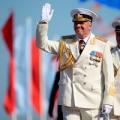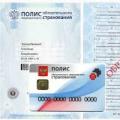The generational discussion unfolded between first president of Ukraine Leonid Kravchuk And State Duma deputy from the LDPR Boris Chernyshov after the latter’s evaluative statement about the signing of the Belovezhskaya Accords, which led to the collapse of the Soviet Union. The young politician called those who participated in the signing of the Belovezhskaya Accords traitors, and the event itself was sad for the whole country.
In response to Kravchuk’s advice to read the works of Solzhenitsyn and the writers of those years in order to understand the true reasons for the decision to collapse the USSR, State Duma deputy from the LDPR Boris Chernyshov noted that he had read the above literary works, and also remembers the difficulties that his family had to endure after the events of 1991 of the year. The parliamentarian also noted that he was indifferent to the opinion of those colleagues in the State Duma who began to laugh after his statement. He said that their laughter speaks of the deafness of the people's representatives to the voice of Russian youth.
“They started laughing in the State Duma because of my age, I’m 25. But who started it? The communists who ruined the country, the United Russia members, who may suffer the same fate as the ruling power in Ukraine, and A Just Russia are socialists. Many of them, at their age on December 8, 1991, did nothing. Young people, the Komsomol, no one came out to defend the country. I don't care about them! If they smile and laugh when young people speak, it means they do not want to hear the voice of the future. For them, this is all a joke, because the Communist Party faction contains people who voted and ratified the Belovezhskaya Accords. Only the LDPR opposed this, and Zhirinovsky defended our country,” Chernyshov said.
He recalled that at the time when the USSR collapsed, he did not live in the capital of Russia, and was in a completely different social status, which is why he can safely say that he experienced difficult times in the post-Soviet historical period.
“I remember the consequences of the collapse of the USSR. At that time I did not live in the center of Moscow, I was not a leading politician or deputy, I lived on the outskirts of the city of Voronezh. And I remember how difficult it was for everyone who lived in the neighboring houses. I remember how my mother, a physicist by training, was selling some shoes! And all this “thanks to” Kravchuk. I remember how my father, a military man, was fired from an aircraft factory due to layoffs. He was worried that he could not receive a salary and buy food for his child and wife. I remember how this country was humiliated,” the deputy said.
According to him, Kravchuk doesn’t care what his descendants say today, since during his political career he managed to accumulate a fortune that allows him to ensure a comfortable old age.
“Of course, he doesn’t care what comments there are. He became rich, lives in luxury and chic. And most of the people who survived the historical vacuum drank themselves to death, and many had their destinies ruined. Everything went downhill only because of the decision of three comrades, I would call them harsher, three traitors who destroyed a great country with history, threw Russia back to the borders of the 17th century! They destroyed three centuries of technological progress. Three eccentrics did what the hordes of the Nazi army could not,” the interlocutor concluded NSN.
In conclusion, he advised the first president of Ukraine to meet with those who blame him for the collapse of the USSR. He pointed out to his opponent that the writer, whose works he advised him to read, described the period of repression, while the 80-90s already represented a completely different historical stage.
“I read Solzhenitsyn, and many other writers who denounce the Soviet period. But only Kravchuk does not understand that Solzhenitsyn wrote about those moments that existed in radical communism when it intersected with terror and political repression. The period is closer to the 80s-90s, when the country lived normally. And let Kravchuk meet with those people who want to spit in his face,” Chernyshov said.
Let us recall that the collapse of the USSR occurred on December 8, 1991 as a result of the signing of the Belovezh Accords by the heads of the three republics. The first President of Ukraine Leonid Kravchuk, who took personal part in this event, explained the statement of the LDPR deputy by the influence of Russian propaganda. He noted that one should not pay attention to the immature judgments of a young man who undertakes to evaluate the events that happened in his early childhood.
He is a member of the parliamentary group for relations with the parliaments of the USA, China, India, France, a deputy of the parliamentary assembly of the union of Belarus and Russia, a member of the working group on recording airtime of the Central Election Commission.
|
|||||||
| The president | Vladimir Vladimirovich Putin | ||||||
| Birth |
June 25(1991-06-25
)
(28 years) Voronezh, Russian Federation |
||||||
| The consignment | LDPR | ||||||
| Education |
|
||||||
| Activity | politician | ||||||
| Media files on Wikimedia Commons | |||||||
Education
Political activity
Legislative activity
In December 2016, Chernyshov, along with Vasily Vlasov, proposed allowing people to join political parties and participate in elections from the age of 16.
In January 2017, he proposed introducing legislation to regulate the sale of e-cigarettes. In the explanatory note, he indicates that the document aims to “prevent the promotion of smoking as a result of vaping.” Basic requirements: a ban on the sale of vapes to children, a ban on the use of vapes in public places and mandatory certification of the product indicating information about the composition of the liquid, the country of origin and expiration date.
In January 2017, he introduced a bill into the lower house of parliament proposing to admit young men with specialized secondary education to pedagogical universities without exams in order to increase the number of male teachers in schools.
In March 2018, he introduced a bill to abolish the unified state exam. He commented this as follows:
“The essence of the bill comes down to canceling the Unified State Exam, which is boring for students and parents, which is not aimed at gaining knowledge, but at “training” on a certain set of tasks. A return to the traditional exam is proposed. This will improve the learning process and make sure that in the final grades children do not prepare for the Unified State Exam, but study calmly and then enter universities.”
In November 2018, he proposed replacing the Unified State Exam with a talent selection system. From his point of view, it will be possible to assess students’ abilities based on career guidance data, grades and social activity. The collected information will be analyzed by blockchain technology, which, according to the deputy, will reveal with “mathematical accuracy” the individual abilities of the student and, without exams, determine which university he should enroll in. How such a system (besides the blockchain itself) will be radically different from the electronic databases of talented youth and gifted children being implemented since 2015 is not specified. However, if successful, the proposed platform could eventually serve as the basis for the world’s second national social rating system.
Notes
- Chernyshov Boris Aleksandrovich - Official website of the LDPR, LDPR news agency, LDPR news (Russian). ldpr.ru. Retrieved January 31, 2017.
- Chernyshov Boris Alexandrovich (Russian). www.gosduma.net. Retrieved January 31, 2017.
- Boris Chernyshov, LDPR (Russian). tvrain.ru. Retrieved January 31, 2017.
- Information about ongoing elections and referendums (undefined) . www.vybory.izbirkom.ru. Retrieved January 31, 2017.
- Automated system for supporting legislative activities (undefined) . asozd2.duma.gov.ru. Retrieved January 31, 2017.
It was received by Veronica Tomilina, a teacher at school No. 1861. She created scripts for English lessons for the sixth grade. Today, more than 360 schools in the capital are taught by teachers who are holders of a grant from the Mayor of Moscow for their contribution to the development of MES.
Participants will find three new areas of study and a significant expansion of one of the existing areas. Older Muscovites will study acting and stage speech. Citizens are also invited to attend ski training, ice skating and other sports.
This was announced by Vladimir Efimov, Deputy Mayor of Moscow in the Moscow Government for economic policy and property and land relations. The turnover of Moscow public catering organizations for seven months of 2019 reached 110 billion rubles, an increase of 10.7% compared to the same period of the previous year. More than 50% of turnover comes from the Central Administrative District.
On October 4, parents will plant trees in honor of their newborn children. In total, more than 2,300 personalized seedlings will appear at 27 sites in the capital’s forest parks this fall. The first named trees in honor of newborns will appear in the Bitsevsky forest.
Now the maximum speed of mobile Internet can reach 200 megabits per second. Average speeds for normal passenger traffic will be about 35 megabits per second. As the mobile operator notes, this will allow you to check social networks while driving, as well as play online games and continuously watch streaming video.
As part of the project “Come in, it’s open!” The Moscow City Health Department will allow visitors to medical institutions to check their health status, receive the necessary medical care, and attend lectures and master classes.
Previously, only individual experiments could be carried out in MES laboratories, allowing work only according to the proposed scenario. Now schoolchildren will be able to perform any experiments in electrodynamics, create objects of planimetry and stereometry, and also build online graphs of functions.
It will be held from October 3 to 5 in the 75th pavilion of VDNKh. The Grand Prix winner's project is recommended for implementation in one of the Moscow districts. Residents of 16 Russian and foreign cities sent their proposals for participation in the competition: Moscow, St. Petersburg, Yekaterinburg, Novosibirsk, Krasnodar, Voronezh, Belgorod, Vladikavkaz, as well as Minsk and Alma-Ata.
During the conservation of fountains, specialists will have to drain the water, rinse the bowls, dismantle nozzles and install plugs, remove ball valves and lamps, clean intake grilles and blow out pipelines. In total, more than 600 fountains have been installed in Moscow. During the season they are open daily from 08:00 to 23:00 and until 00:00 on weekends and holidays.
The harvest festival will cover more than 1.5 thousand sites throughout the city, as well as 22 metropolitan agricultural markets, 96 weekend fairs and 1,386 chain stores. This year the main theme of the festival will be innovation in agriculture. The central platform will be Red Square. There, the organizers will create a rural landscape with a Russian field, an orchard, a pasture, an apiary and a mill. There you will also be able to see models of tractors, trucks and combines.
State Duma deputy from the LDPR Boris Chernyshov is one of the youngest parliamentarians. He is 25 years old. He worked in the lower house for just over three months - and has already introduced two anti-vaping bills. ViVA la Cloud studied the politician’s biography using open sources. ">Who is Boris Chernyshov - the deputy who twice “banned” vaping
State Duma deputy from the LDPR Boris Chernyshov is one of the youngest parliamentarians. He is 25 years old. He worked in the lower house for just over three months - and has already introduced two anti-vaping bills. ViVA la Cloud studied the politician’s biography using open sources.
Boris Aleksandrovich Chernyshov was born on June 24, 1991 in Voronezh. Father is a military man. In the 1990s, he “did not receive a salary,” and then was completely fired “from the aircraft plant due to layoffs.” My mother is a certified physicist and “sold some shoes” in the 90s.
After graduating from school at the age of 17, the future deputy entered the Faculty of Political Science at the Higher School of Economics and moved to Moscow. “I didn’t have money to go hang out somewhere,” the politician recalled on OTR. Chernyshov preferred the library to nightclubs - he was good at his academic work. The young man wanted “some kind of professional growth” and “began to choose between parties.”

At the end of his first year, Chernyshov began to sympathize with the LDPR. He interned in the youth cell, participated in party activities: book exhibitions, fairs, and wrote “for the party newspaper.” At that time, judging by his Twitter and Facebook accounts, Chernyshov was a progressive young man: liked oppositionist Alexei Navalny, visited trainings personal growth And career effectiveness.
It is unknown whether self-development lessons played a role, but Chernyshov advanced in the party, first becoming an assistant to State Duma deputy Yaroslav Nilov - one of the co-authors of the law on the “black list” of sites - and then going to work for Vladimir Zhirinovsky - apparently, an assistant to the party leader . As a result, the young man ended up as head of the party’s youth branch.
By that time Chernyshov graduated university, without delay setting off to further self-education at Moscow State University. He became a master, however, without specifying what specialty. The politician avoided the army - which did not stop him from sympathizing with the military. “There are a bunch of intriguers and revolutionaries working in Russia, carrying out the orders of the West. They, like mad dogs, foaming at the mouth, bring to the capitalist hill their master, Uncle Sam, the trophies they earned in Russia,” Chernyshov delivered a militaristic speech at a LDPR rally in honor of Defender of the Fatherland Day in February 2013. He concluded his speech with the classic “the enemy will not pass,” but nevertheless did not receive an ovation.

In the same year, Chernyshov began to appear in “big” politics. In the summer of 2013, he was deputy head of headquarters of the LDPR candidate Mikhail Degtyarev in the Moscow mayoral elections. At the plebiscite, Degtyarev fell slightly short of three percent of the votes, taking penultimate place with 66 thousand signatories.
The next year, Chernyshov's ambitions grew. He ran for the Moscow City Duma in the 32nd electoral district. It includes parts of the Danilovsky, Donskoy districts, Nagatino-Sadovniki and part of the Nagatinsky backwater. The candidate's programs could not be found. Chernyshov’s level of familiarity with local problems was illustrated by television debates on Moscow-24. The politician was asked:
What to do with a convenience store in the area of houses 42–46 on Andropov Avenue?
Quite a specific question. - the presenter emphasized. - The answer should probably also be specific.
Chernyshov was not at a loss:
I propose the following: that there be more small markets, that weekend fairs work better, that there are more shops within walking distance. Unfortunately, not all areas, not even all microdistricts, do not have normal roads (quote slightly shortened - author's note).
The politician lost the election. In his district, he took third place from the bottom, gaining just over five percent - 1828 votes. This was the worst result in terms of the “price” of the voter: according to the calculations of Vladislav Naganov, a member of the central council of the opposition Progress Party, Chernyshov spent almost six thousand rubles on each signature. In total, the parliamentarian spent about 11 million rubles on the campaign - personal funds amounted to 236 thousand, the party gave 10 million. With all this money, Chernyshov printed leaflets - it is not a fact, however, that it was for himself.
But this did not break Chernyshov. He moved to the federal level, running as a candidate for the State Duma of the Russian Federation in 2016. He strengthened his party positions: by that time Chernyshov held the position of “senior specialist of the second category of the apparatus of the State Duma Committee on the Affairs of Public Associations and Religious Organizations.” The politician's result was again not the most impressive, finishing third with 15 thousand votes. He was also placed first on the Moscow LDPR party list.

Chernyshov became a State Duma deputy. On September 28, 2016, he handed over the mandate. During three months of work, he took part in 18 meetings,




